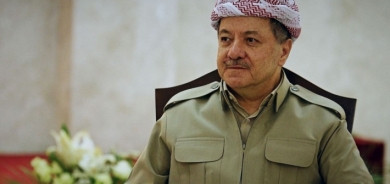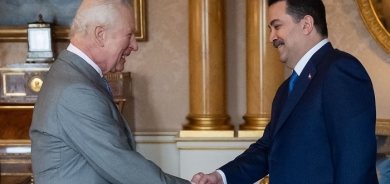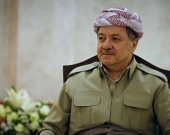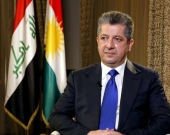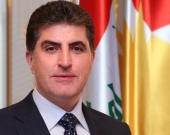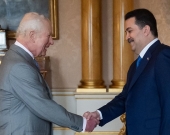Iraq attacks kill 16 as cabinet talks security

Attacks killed 16 people in Iraq on Tuesday, officials said, as the cabinet discussed how to curb violence that has left over 500 dead this month and raised fears of all-out sectarian conflict.
The UN envoy to Iraq meanwhile urged the country's feuding leaders to meet to resolve long-running political crises that have paralysed the government and been blamed for its inability to reduce the violence.
As of Tuesday, 519 people have been killed and over 1,300 wounded in May, making it the deadliest month in at least a year, according to AFP figures based on reports from security and medical sources.
May is the second month in a row in which more than 400 people have been killed, for a total of almost 1,000 dead in less than two months -- a toll that continued to mount on Tuesday.
In the deadliest attack, a bomb exploded on a bus in Sadr City, a Shiite area in north Baghdad, killing five people and wounding at least 26, security and medical officials said.
In Tarmiyah, north of Baghdad, a suicide bomber driving an explosives-rigged truck killed four people and wounded eight, while gunmen killed two Sahwa anti-Al-Qaeda militiamen and wounded two more near Tikrit.
And four police died in clashes in Mosul, while a bombing near the northern city killed senior police intelligence officer Lieutenant Colonel Faris al-Rashidi and wounded three other police.
The attacks come a day after a wave of violence, including bombings in Baghdad that mainly targeted Shiite areas, killed 58 people and wounded 187.
As the violence raged, the Iraqi cabinet discussed the country's "security challenges" and ways to address them, afterwards announcing a series of measures aimed at stemming the bloodletting.
These measures included "pursuing all kinds of militias," calling for a meeting of the country's political powers to discuss developments, providing unspecified support to security agencies, and warning the media against inciting sectarian strife, a cabinet statement said.
Iraq has already suspended the licences of 10 satellite television channels for allegedly inciting sectarianism, although an official in the country's media regulator said on Tuesday that at least some of those channels would have their licences restored "soon".
It was not clear what immediate impact the announced measures would have on security, if any, especially given that authorities have unsuccessfully struggled for years to curb the violence plaguing the country.
United Nations envoy Martin Kobler called on Tuesday for Iraq's leaders to engage in dialogue and stop the bloodshed.
"I once again urge all Iraqi leaders to do everything possible to protect Iraqi civilians. It is their responsibility to stop the bloodshed now," Kobler said in a statement.
"It is the politicians' responsibility to act immediately and to engage in dialogue to resolve the political impasse and not let terrorists benefit from their political differences," he said.
Iraq is faced with various long-running political crises over issues ranging from power-sharing to territorial boundaries, that have paralysed the government.
The country has seen a heightened level of violence since the beginning of the year, coinciding with rising discontent among Iraqi Sunnis that erupted into protests in late December.
Although the violence has fallen from its peak at the height of the sectarian conflict in 2006 and 2007, when thousands died each month, the body count has begun to rise again in recent months.
Members of Iraq's Sunni minority, which ruled the country from its establishment after World War I until Saddam Hussein's overthrow by US-led forces in 2003, accuse the Shiite-led government of marginalising and targeting their community.
Analysts say government policies that have disenfranchised Sunnis have given militant groups in Iraq both fuel and room to manoeuvre among the disillusioned community.
The government has made some concessions aimed at placating protesters and Sunnis in general, such as freeing prisoners and raising the salaries of Sunni anti-Al-Qaeda fighters, but underlying issues have yet to be addressed.

